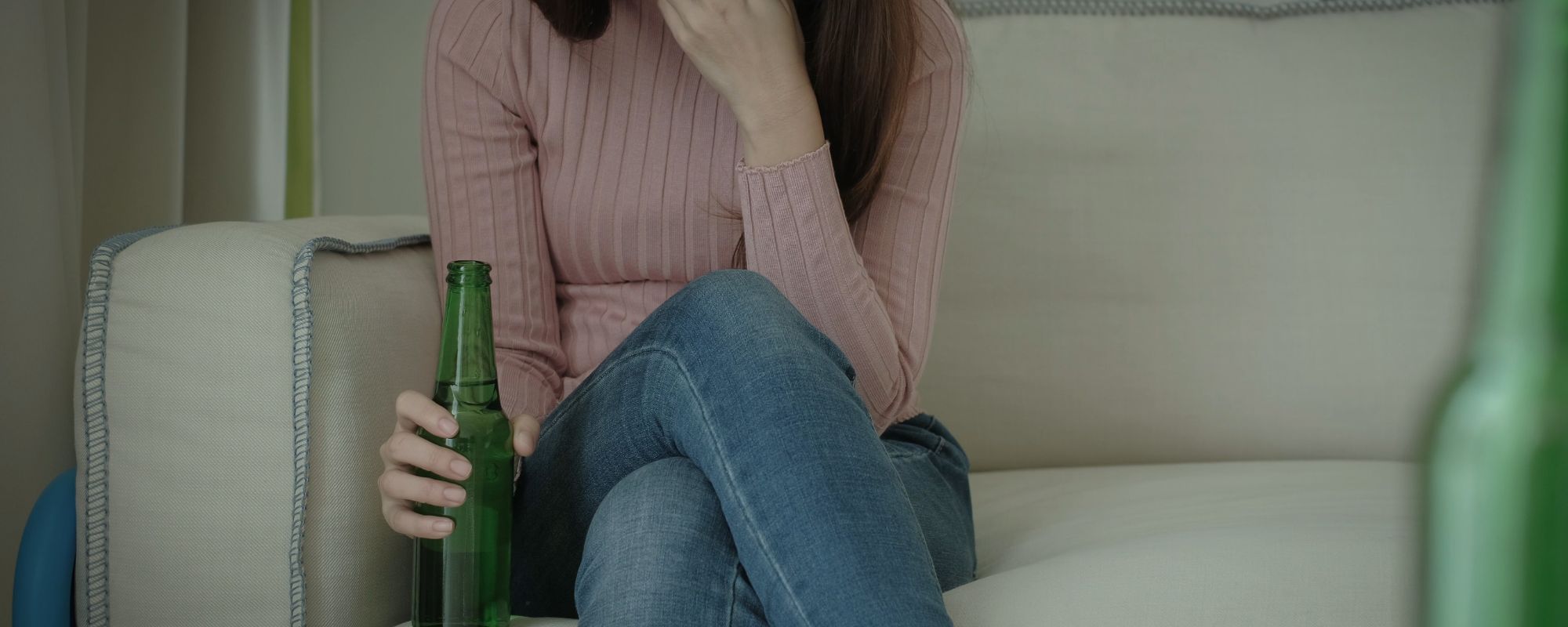It takes bravery, courage, and accountability to take the steps to get sober and leave behind addiction. If you’ve been through inpatient or outpatient treatment (or both), you’ll know how obstructed the road to recovery can often be and the hard work it takes to reach that goal. Sober living homes can help.
Staying sober can be just, if not more, challenging since many people struggle to find their footing from residential rehab back to living independently. The sudden freedom, the pressures of day-to-day living, stress cues — the people, places, or things that may remind you of past substance abuse — or living in an environment unconducive to sobriety can raise one’s risk of relapsing. (Statistics show that two-thirds of people treated for alcohol use disorder relapse within six months.)
During this transitional time, sober living homes act like a safety net. Sober living housing enables you to rediscover your newfound independence, but in a substance- and drug-free environment free of triggers. But what can you expect from living in a sober home — and what value can it bring to your recovery?
What Are Sober Living Homes?
What is a sober home? It’s a type of transitional group housing, free from alcohol or drugs, where you’ll live with other people in recovery committed to maintaining sobriety and supporting each other. It serves as a bridge between intensive inpatient rehab and living back out on your own.
Studies show that nearly 1% of people concluding substance use disorder treatment choose to stay in a sober home. An extension of the aftercare phase of treatment, it’s a strictly substance-free space, away from potential relapse temptations, where you’ll share chores and responsibilities around the house, pay rent, and continue attending 12-Step peer support groups (such as Alcoholics Anonymous or Narcotics Anonymous).
There are generally four different types of sober living homes:
- Peer-run: Residents manage the sober home themselves.
- Partially staffed: A paid staff member provides oversight.
- Structured: Trained staff to enforce rules and provide guidance and supervision.
- Clinically managed: Licensed, credentialed professionals oversee operations and offer support services.
Sober House vs. Halfway House
Sober living homes and halfway houses are often confused, and the two terms get mistakenly used interchangeably. Halfway houses are often government-funded and typically cater to people exiting criminal incarceration or court-mandated treatment. They have stricter rules and a set timeframe for residency.
On the other hand, a sober home is usually privately owned, and you live there of your own volition. (A luxury sober living home may offer additional amenities and a more comfortable environment, but be mindful that you may need to budget for a higher cost of living.)
How Does Sober Living Help with Long-Term Sobriety?
Think of rehab like going to school — once you’ve graduated, a sober home is like an internship to start practicing all the skills and lessons you’ve learned and cultivated during treatment.
And although your time in sober living is temporary, the experiences you’ll gain will shape your sobriety for the rest of your life.
Firstly, steering clear of addictive substances is paramount when you leave rehab. You’ll have learned coping skills and made a pledge to yourself to avoid drugs and alcohol, but the triggers don’t magically disappear. In a sober home, you can literally rest your head at night knowing that substances are strictly prohibited in the house — a policy you can take with you once you begin living in your own home again.
The sober perspective you’ve unearthed in rehab also doesn’t have to be a solo effort. When you live among others equally committed to recovery, you’re constantly reminded of your goals and the importance of staying accountable. Like a team, you’re all in this together, bolstering each other while working toward a common outcome. It’s a safe space to rebuild your confidence and reconnect with yourself.
Looking for quality treatment for substance abuse and mental health that’s also affordable? Aliya Health Group's treatment facilities accept most major insurance providers. Get a free insurance benefits check now!
Check Your CoverageHow Does Sober Living Work?
Here’s a rundown of how living in a sober home works:
Transition from Residential Recovery
For people with more severe addictions, going from the comfort and security of detox and a subsequent inpatient rehab stay straight back into the rigors of real life can feel like you’ve skipped over a necessary step.
Sober living is that needed transitional phase to get you prepared for independent living in a more controlled environment — like inpatient rehab, there are no drugs or alcohol permitted on the premises.
Think of the lessons you learned in treatment — through cognitive behavioral therapy with your counselor, group sessions, or the mindfulness meditation you looked forward to — and look at sober living as a place to carry forward that progress and begin applying it in everyday situations. It’s like getting back in shape after being out of the game for a while.
Structure and Support
One added benefit of living with others in recovery is the structure a sober home provides after the unstructured world of substance abuse. The structured space of sober living helps you get back on track by adopting healthy routines in your life, like maintaining a regular sleep schedule, adhering to day-to-day goals, and committing to work or school.
But more importantly, the residents you’ll live with for a time are like a built-in support system to lean on each other. Together, you can develop healthy routines and encourage each other in moments of weakness or vulnerability, a comradery to help reduce the isolation that too often accompanies addiction — but also to rebuild your sense of independence and self-sufficiency.
House Responsibilities
Do sober homes have rules? Residing in a sober living situation means you have a responsibility to hold up your end in the smooth running of the house. There are sober home chores like cleaning, cooking, maintaining things around the house, and sharing expenses.
Many of these essentials fall by the wayside in one’s own home when alcohol addiction becomes their number one priority. In a sober home, this reacquaintance with managing your time gives you not only a sense of pride and ownership of your living space but also illustrates what’s really important once you’ve shunned drugs and alcohol from your life.
That doesn’t mean it’s all work. Sober living offers plenty of time for sober, substance-free bonding outside of chore time. Your home may have a house manager who can organize and plan local outings and activities like nature hikes, bowling, ice skating, movie nights, and grocery store runs.
Learning Life Skills
Addiction can consume and disrupt the basic, everyday life skills that sober living can help you relearn — so integral to your self-growth and sobriety. Thankfully, you’re not alone.
Here, you’ll learn better time management to balance work, school, and personal matters with recovery meetings for peer support groups. Financial independence becomes easier as you practice budgeting, paying rent, and managing house expenses responsibly with your roommates (illicit substances cannot be purchased or allowed at home). And just as important, self-care and house upkeep — like cooking and cleaning — are tasks delegated to each resident.
By the time you say goodbye to your sober home, you’ll have remastered these skills like they’re second nature as you segue back into autonomy.
Get confidential help from our addiction and mental health treatment facilities located across the United States. Call to join one of our quality programs today!
Speak With Our Admissions TeamDo Sober Living Homes Have Rules?
Yes, there are sober home rules and set boundaries that everyone is expected to adhere to, like:
- Keep the house sober and maintain that there are no drugs or alcohol on the premises.
- Regular sobriety and drug testing may be a rule in your sober house to make sure everyone is staying clean.
- Curfews and check-ins are in place to make sure residents return by a set time to keep up with house responsibilities.
- There are also guest limitations; individuals who may supply substances or be a bad influence aren’t allowed.
- Participation in house meetings and other recovery-centric activities is often required.
- Respect for others is another house rule, where everyone is expected to obey quiet hours and resolve conflict to maintain a peaceful, sober home.
How Do I Find Sober Living Homes?
If you’ve been in inpatient recovery and you’re either transitioning to outpatient treatment or nearing the end of the program, sober living homes become an option before returning home on your own.
If a stay in a sober home is something you’re interested in, or if it’s suggested to you by your therapist or case manager, ask them some important questions prior to exploring your options:
- What are the house rules and expectations?
- Is there on-site staff or a house manager?
- Is participation in peer support groups/recovery meetings required?
- Does it cost anything out of pocket?
- Can I continue therapy or outpatient treatment?
- What comes next after living in a sober home?
Can I Use Insurance to Pay for Sober Living?
Insurance plans vary in their coverage of behavioral health services, and Aliya’s facilities accept both in-network and out-of-network insurance plans. Will insurance cover your stay at a treatment center and sober home? Click here to verify your insurance and see how much your financial obligations can be reduced.
From the time you enter rehab to the moment you emerge clean and sober, addiction treatment can be the pivotal, life-changing resource you need to change your life. You can make a difference in your sobriety if you’re struggling with drugs or alcohol — but the change begins with you. Contact us today to learn more about how Aliya can help.
















